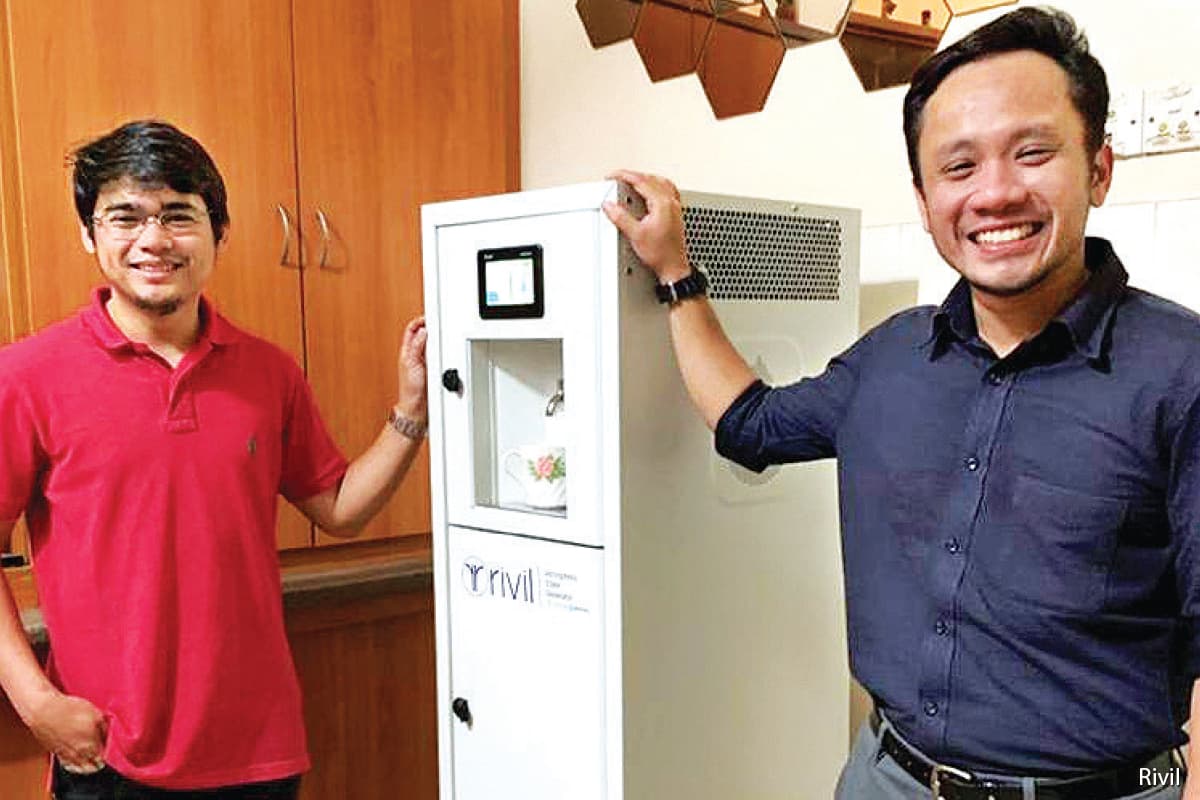
This article first appeared in Digital Edge, The Edge Malaysia Weekly on February 8, 2021 - February 14, 2021
In November 2017, Faizal Akmal Rashid came across a disturbing article in BioScience, a monthly journal published by the American Institute of Biological Sciences. The piece, titled “World Scientists’ Warning to Humanity: Second Notice”, was co-signed by more than 15,000 scientists globally.
He read that, from 1960 to 2016, the journal had highlighted eight alarming challenges that humanity would need to solve to avoid the sixth mass extinction, which may happen by 2100.
One of these challenges was that the availability of fresh water had decreased drastically, owing to the impact of climate change and the trend of overpopulation.
“The journal opened my eyes and made me realise how important water is to us. My interest grew and, with it, an interest in learning how we could preserve water,” says Faizal.
Looking around for solutions, he stumbled on Atmospheric Water Generator technology. “Since water is always in the air in the form of humidity, AWG can extract the water from the gas to liquid state via condensation. This, to me, is the real answer to water scarcity.”
He set up Rivil Sdn Bhd in 2018 to bring this technology to Malaysia. Faizal hastens to add that AWG was not developed by the company, but it worked with its tech partner in Spain — Genaq, which has been manufacturing these generators since 2008 — to adapt the technology to the Malaysian climate.
He declines to say how much he has already invested in the company but discloses that Cradle Fund Sdn Bhd has given it a RM500,000 grant for all of 2021 and Rivil is open to further investment, although Faizal tends to be picky about who can invest.
“I believe that access to clean water should be a right but, unfortunately, not everyone believes so. So, I prefer to get funding from individuals or corporates that share the same goals,” he says.
Where are AWG generators deployed? “They have been used mainly in areas where conventional water supply is not available — by the armed forces of a few countries, the United Nations, oil-and-gas vessels — and in certain rural areas. Some manufacturers even use our AWG as a back-up supply in the event of a drought or water disruptions. So far, the feedback has been great,” he enthuses.
He adds that the water condensed from the air has minerals in it, so it tastes like mineral water.
One question that has to be asked is whether this technology is safe for the environment. Would extracting the water out of the air upset the delicate ecological balance?
No, says, Faizal, because the proportions are way too small to be significant.
“According to the National Water Resource Study (2011), the amount of evaporated water, or water in the air at any time, is around 412 billion cu m, which constitutes 42.6% of Malaysia’s freshwater sources.
“Hypothetically, if every Malaysian uses AWG with the current average per capita consumption of 220 litres per day, we would be using only 0.17% of the amount of water in the air.
“This insignificant amount of water extraction from evaporation, together with the large-scale movement of atmospheric circulation around the earth, makes it impossible for AWG to affect the environment negatively, nor will it interrupt our rainfall or destabilise it.”
Faizal sees more demand coming from this region, which is admirably suited to the technology because of the high humidity levels, as more people become aware of it and water scarcity and disruptions continue to plague the populace.
There is one setback, though. The cheapest unit is about RM25,000, which is out of the range of most people.
How does he plan to address this point? “We have been revising our prices each year to ensure that more and more people could benefit from the technology. In 2021, our AWG starts from as low as RM19,900 and we do have both rental and instalment plans for our clients.”
Faizal adds that, since Rivil’s mission is to accelerate the supply of fresh water to everyone at affordable prices, it also provides attractive CSR (corporate social responsibility) packages for companies that want to contribute to communities that face water problems.
“We also invite anyone with water supply issues and insufficient means to pitch their problem to us and we will try our best to find them a funder [to avail themselves of this solution].”
Save by subscribing to us for your print and/or digital copy.
P/S: The Edge is also available on Apple's AppStore and Androids' Google Play.
